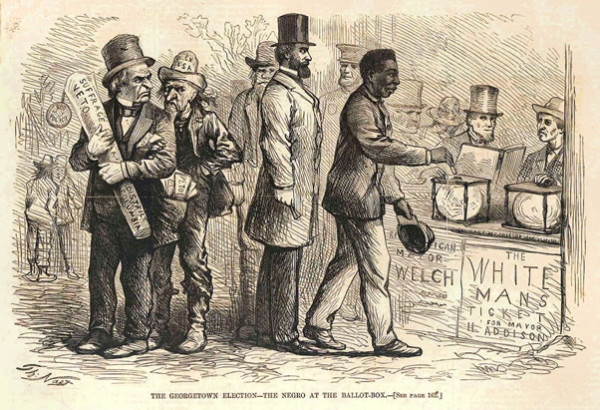
The cumulative effect of the different restriction efforts was to reduce overall voting levels by more than a third and black voting rates by almost two thirds.

This excerpt from the Louisiana law of 1898 was typical of many such restrictions. One form of voting restriction aimed specifically at African Americans was the Grandfather clause that allowed men to register to vote only if they could have voted in 1867 (before African Americans were allowed to vote in the South) or descended from an 1867 voter. Between 18, nine states outside the South added restrictions requiring voters to read English, and ostensible reforms like the secret ballot were often directed at pushing out foreign-born and illiterate voters. Many northerners supported suffrage restriction as well. Although these restrictions were most often directed at black voters, those that barred voting on the basis of literacy or ownership of property also affected poor whites. In the post-Reconstruction era, Southern states mobilized a vast campaign of suffrage restriction-fraud, registration laws, and literary tests-in an effort to disempower African Americans and maintain Democratic party dominance.

Reading the Fine Print: The Grandfather Clause in Louisiana


 0 kommentar(er)
0 kommentar(er)
